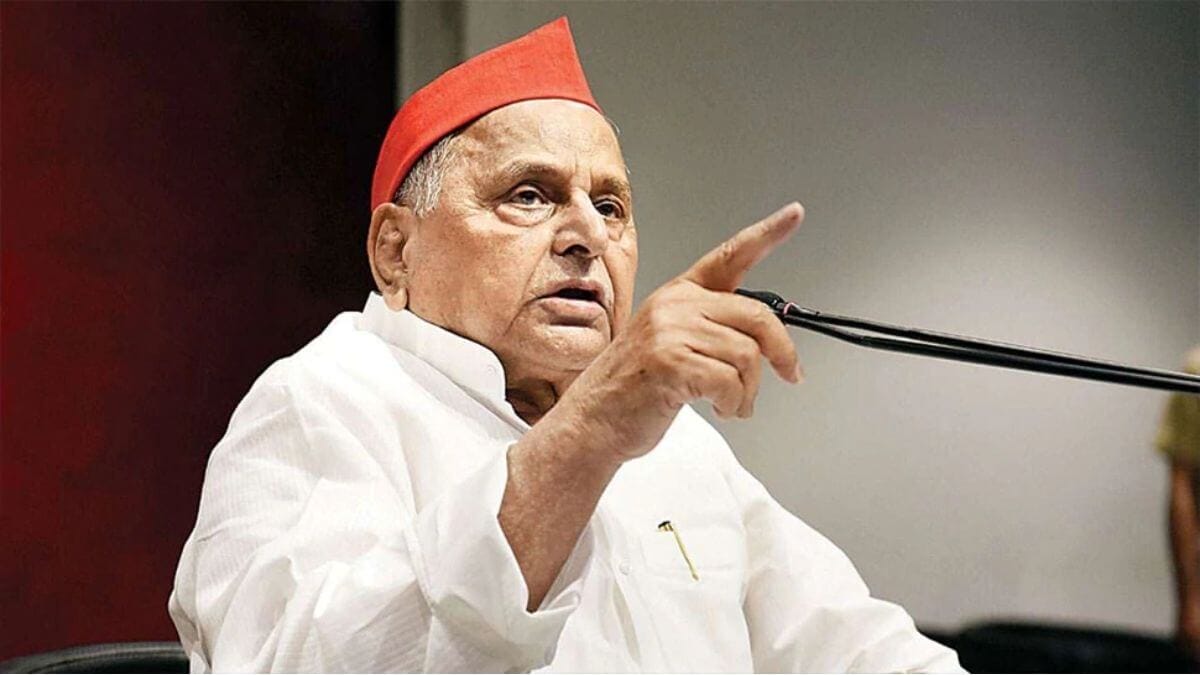Mulayam Singh Yadav, the founder of the Samajwadi Party and a former chief minister of the state of Uttar Pradesh, died on Monday at the age of 82, which was a significant loss for Indian politics. Yadav has been receiving care at the Medanta Hospital in Gurugram since August 22. On October 2, his condition deteriorated, and he was sent to the intensive care unit (ICU). His condition has been critical ever since, and he has been given life-saving medication.
Along with his son Akhilesh Yadav, daughter-in-law Dimple Yadav, and other SP workers, Yadav was visited by leaders from other political parties, including Haryana Chief Minister Manohar Lal Khattar, RJD leader Lalu Prasad Yadav, CPI general secretary D Raja, and RLD leader Jayant Chaudhary. Akhilesh Yadav was also contacted by PM Modi and Yogi Adityanath to ask about the condition of his father. He was being treated by a large group of experts.
मेरे आदरणीय पिता जी और सबके नेता जी नहीं रहे – श्री अखिलेश यादव
— Samajwadi Party (@samajwadiparty) October 10, 2022
Early years in Politics
Mulayam Singh Yadav, who was born in Saifai on November 22, 1939, was regarded as one of the nation’s tallest socialist leaders. He completed his political science B.A., B.T., and M.A. degrees. Ram Manohar Lohia’s socialist ideas and ideology inspired him, and after getting to know leaders like Madhu Limaye, Karpoori Thakur, Ram Sewak Yadav, Raj Narayan, and Janeshwar Mishra well, he entered politics. Additionally involved in student politics, he presided over the Etawah Degree College in 1962–1963 and the Shikohabad A.K. College in 1963–1964 as president.
He also briefly worked as a lecturer at a college in Karhal. He was chosen to the Uttar Pradesh Legislative Assembly for the first time in 1967 and then again in 1974. He was, however, detained for 19 months after being caught a year later during the Emergency. He was re-elected as an MLA in 1977 and appointed as the Minister for Cooperatives and Animal Husbandry in Ram Naresh Yadav’s Cabinet. He led the Lok Dal (B) after a party split, even though he was elected president of the Lok Dal (People’s Party) the same year. In 1980, he won the election to lead the Janata Dal.
Key role Mulayam Singh Yadav played important role in UP and at the centre
Even though he was not successful in getting elected to the Assembly in 1980, he was elected to the UP Legislative Council the following year and was appointed Leader of the Opposition. He took over as the Leader of Opposition in the Lower House after winning the UP Assembly election in 1985. With the help of the BJP from outside, he was first elected Chief Minister of Uttar Pradesh in 1991. After Yadav opposed LK Advani’s Rath Yatra during the Ram Janmabhoomi agitation and ordered firing on the Karsevaks who congregated at the then-disputed site in Ayodhya on October 30, 1990, the saffron party withdrew its support for the government.
Congress originally supported him, but in 1991 his government was overthrown when the party withdrew. He started the Samajwadi Party in 1992, and a year later, with the help of the BSP, he brought his party to power in Uttar Pradesh. However, Mayawati’s party left the partnership to form a coalition government with the BJP, therefore his second term as CM was likewise brief. After winning the Mainpuri seat, he first served in the Lok Sabha in 1996. Despite HD Deve Gowda beating him to the position of prime minister, he was appointed defence minister and served in that capacity till 1998.
In 1998 and 1999, he was re-elected to the Lower House of Parliament. In September 2003, Yadav was elected as chief minister for the third time with the assistance of renegade BSP, Independent, and smaller party lawmakers. Mayawati held the role of chief minister for two years before to that in 2007. He continued to be a significant player in national politics, particularly under the UPA administration, and was elected to the Lok Sabha in 2009, 2014, and 2019. The eight-time MLA suffered a significant setback in January 2017 when Akhilesh Yadav forced him out of his position as SP president. The former CM of Uttar Pradesh has since kept a low profile and abstained from political campaigning.


